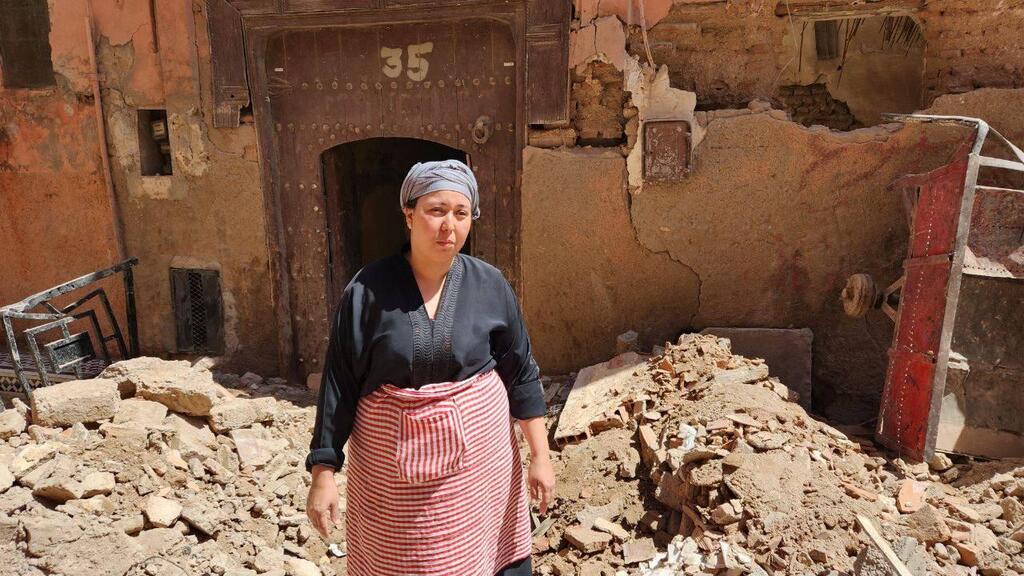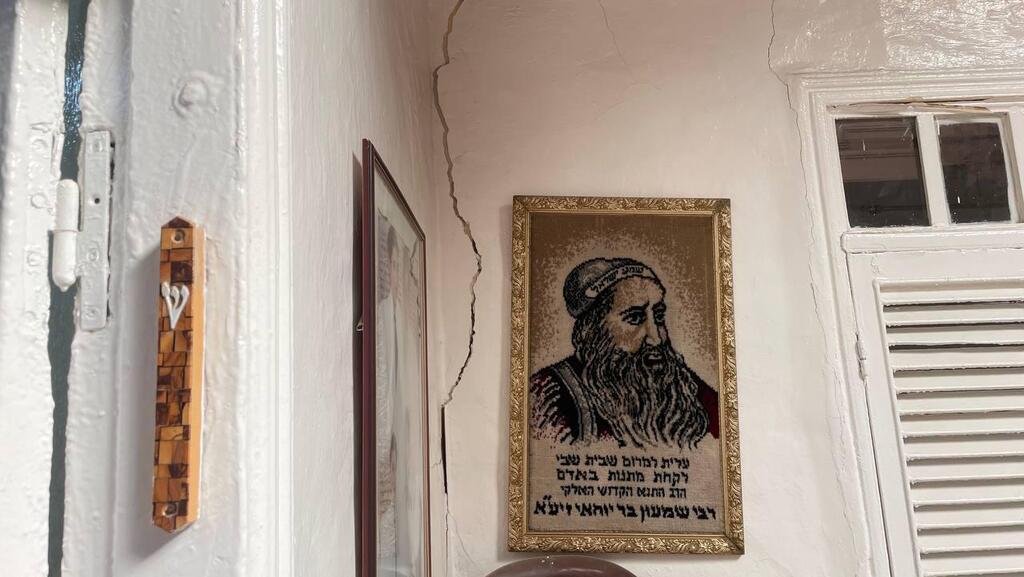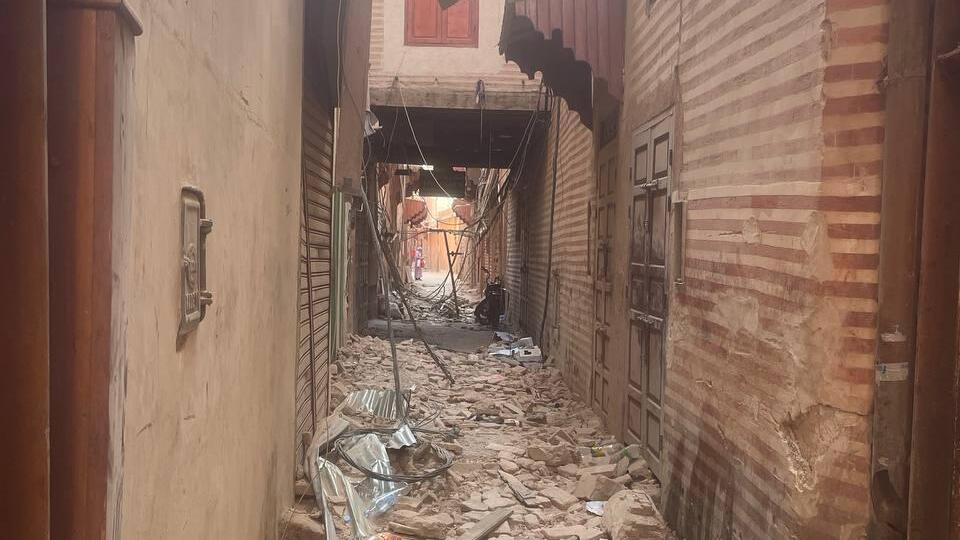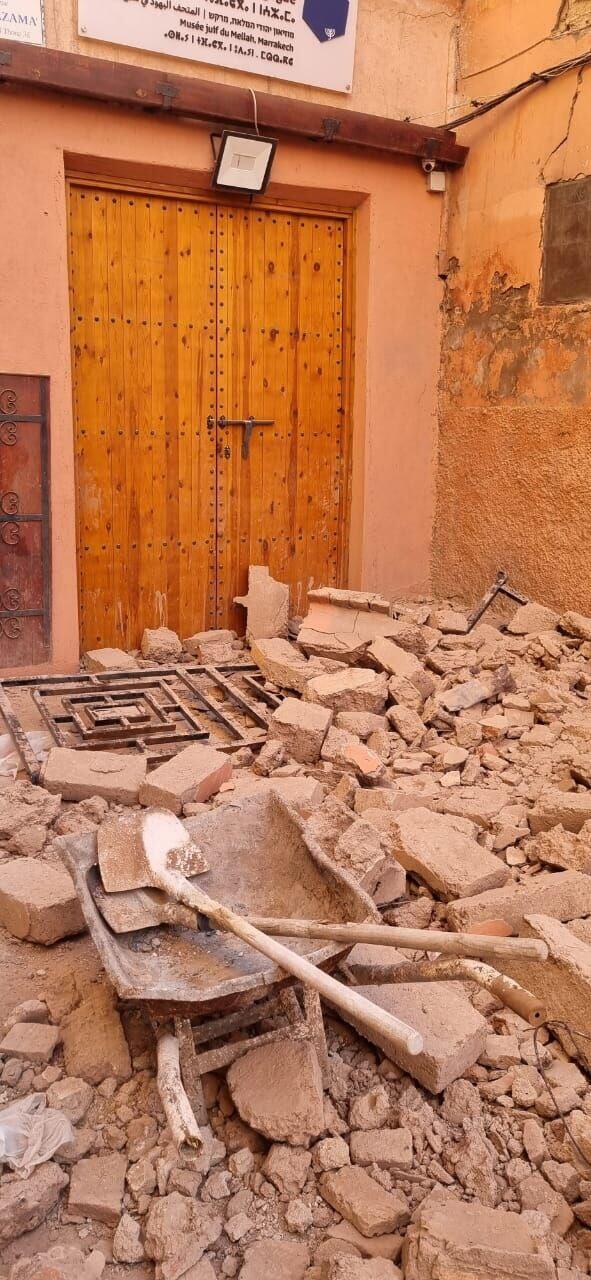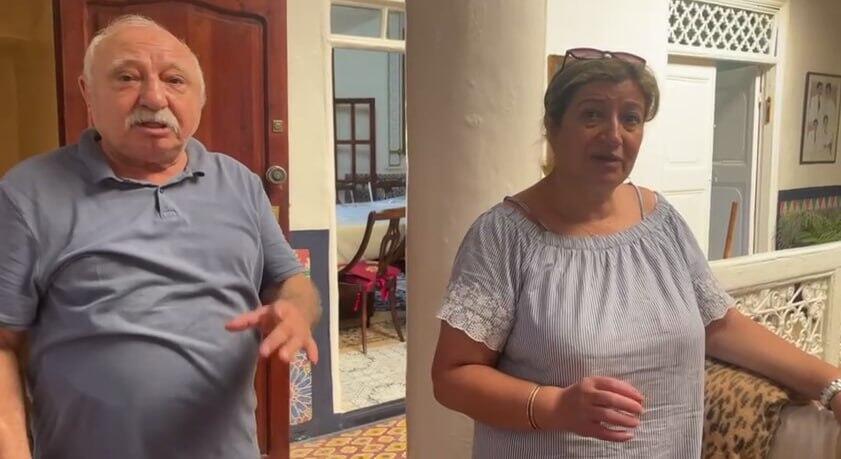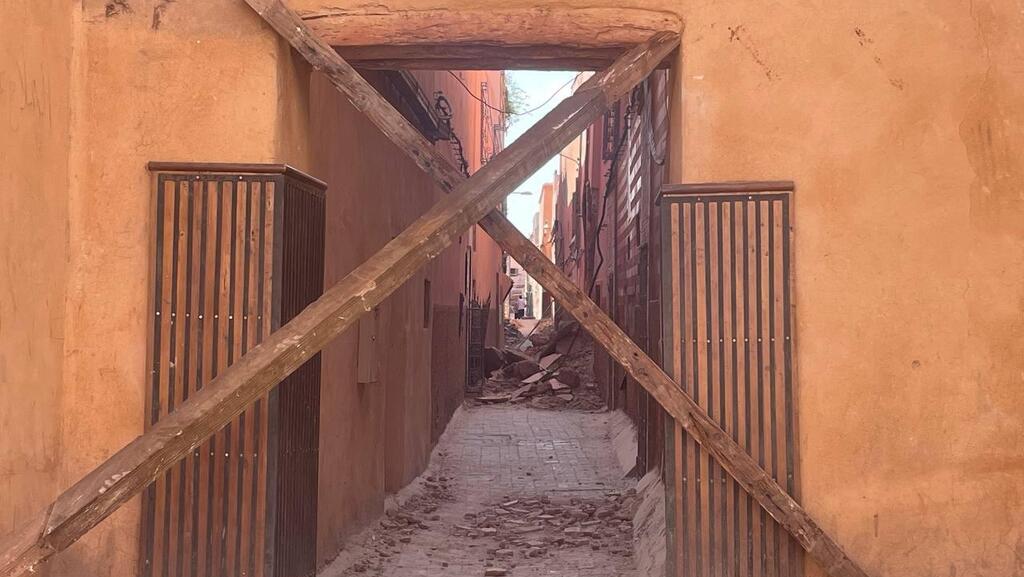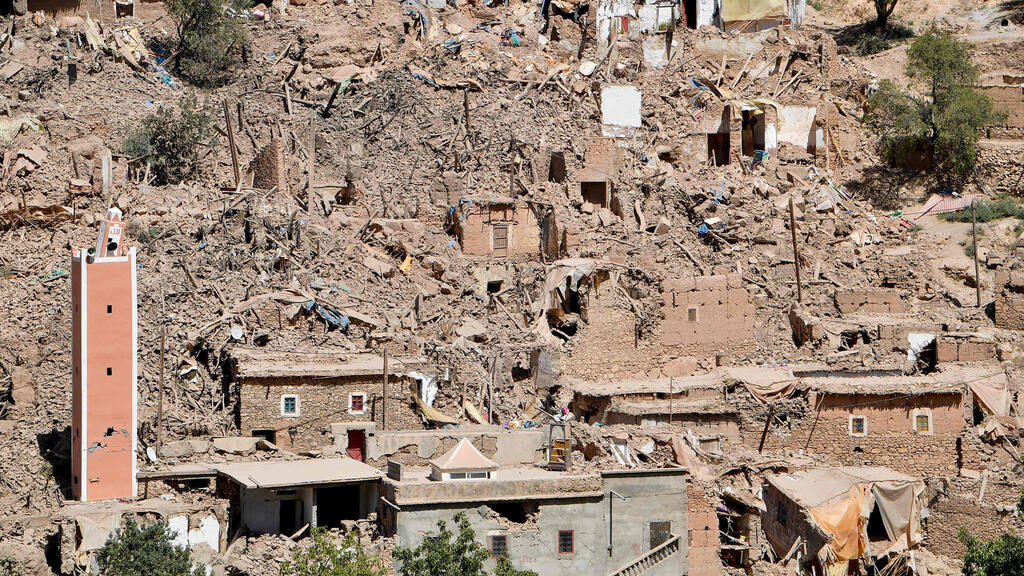Footage of the Synagogue Salat Al Azama during the tremor
(Video: Kobi Yefrah)
A day and a half after the devastating earthquake in Morocco that claimed the lives of over 2,000 people, the Jewish community in Marrakesh was still assessing the damage. Fortunately, there were no fatalities among the Jews living in the ancient quarter of the city, but property was destroyed, including Jewish sites. The Old city where the Jewish Quarter is located, sustained much of the damage from the 7.2 magnitude quake.
Read more:
Amal, who is a cleaner in the local synagogue said a wall nearly collapsed on top of her daughter. "She moved a split second earlier," she told Ynet. Another resident said they have nowhere to go. "We are on the street with no food. We have nothing and thus far, no help has arrived," she said.
Cracks appeared in the walls of the Salat Al-Azama Synagogue and the community leaders hoped that the holiday services would be possible in the old structure. "We will need to address the damages before the holidays and get everything in order," said Jackie Kadosh, President of the Jewish Community.
Families had spent the nights since the quake, in the square at the entrance to the Jewish quarter. At the edge of the square lies the Haliva family's home, one of the last Jewish families in the city. The house, built in 1842, suffered noticeable damage, rendering it uninhabitable.
"Thank God we are alive. God has truly performed a miracle for us," said Esther, the family's mother, tears welling up in her eyes as she grapples with where they will stay in the near future. Just recently, IDF Chief of Staff Aviv Kochavi and Transportation Minister Miri Regev had been guests there but now, it is unsafe.
Morris (Moshe), the father of the family, a 72-year-old native of Morocco, immigrated to Israel and served in the Border Police. He then returned to Marrakesh. His mother lives in Ashdod, and since Saturday night, he has been trying to reassure her that they are safe. The family business, a fabric shop, is located beneath their home, and this morning, it remained shut. It's not inconceivable that the shop may never open again.
Right now, Morris is awaiting the city engineers who have yet to arrive, given the extensive damage in the old city. Four of their children, live in France, and some were supposed to visit them during the holidays. Morris said he knows that they won't be coming this year.
Elsewhere in the Jewish quarter, Kobi Yefrah, who supervises the Jewish Community Museum in Marrakesh, told Ynet that since the earthquake, he has been vigilant and prepared for aftershocks. "On Friday overnight, the entire house shook, I mean it really shook," Yefrah, who has been living in Marrakesh for a decade, said. He added that this was an opportunity for Israel to invest in this ancient community.
"We managed to escape, ran down all the stairs, and got outside. After we left, we realized the extent of the damage. The dust rose throughout the whole quarter. We didn't return home until the next morning when we realized there was no immediate danger. Tonight, we will be sleeping downstairs to be ready to exit after we were warned of potential aftershocks. Now, we're beginning to assess the damage."
Hasa, a merchant in the Jewish Quarter said people were still showing up to buy his merchandise. "I hope things will be better," he said. "God is great and we pray. We are all children of Abraham.
Marrakesh is a UNESCO World Heritage Site and the organization was concerned for its many cultural treasures. "After such a disaster, our first concern is for the safety of the people," Eric Falt said.
but we must also prepare for the next stage that would include rebuilding our schools and other cultural assets that were damaged by the quake," he said, referring to the Jewish sites as well.
The official death toll from the earthquake in Morocco rose to over 2,100, with the number of injured climbing to more than 2,400 as well, including 1,404 in critical condition. According to the World Health Organization (WHO) some 300,000 people lived in the area impacted by the earthquake.
Caroline Holt Director of Disaster, Climate and Crises at the International Red Cross said the next 24 hours were critical to save lives. Moroccan King Mohammed VI announced three days of mourning for the lives lost.
8 View gallery
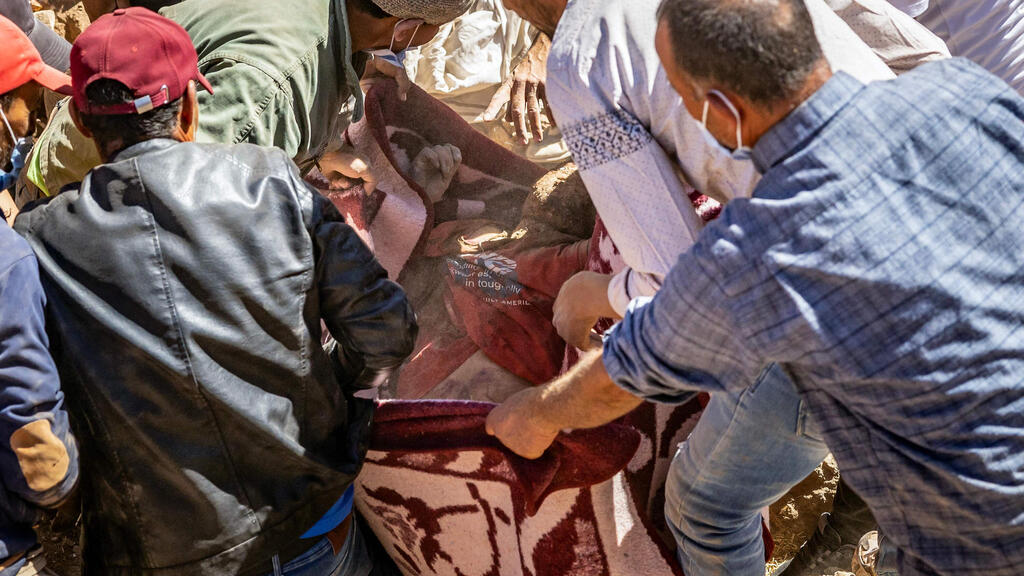

Search and rescue operation in the village of Tafilalt, near Marrakesh
(Photo: Fadel Senna / AFP)
On Sunday, efforts to locate and rescue those trapped beneath the rubble continued. The primary goal was to reach the residents in the mountainous regions surrounding Marrakesh, where the most severe damage occurred. Many roads to the villages and towns in that area have been blocked by rockslides triggered by the earthquake, making access to them quite challenging.




